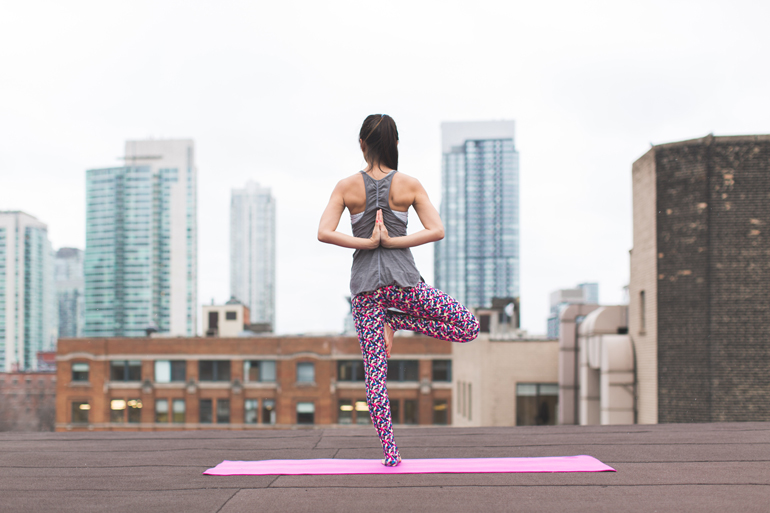The hedonic treadmill is the theory that we all return to our baseline level of happiness, both after wonderful experiences and also after devastating ones.
The global pandemic of COVID-19 is a devastating experience. For many of us, it has been accompanied by additional stressors as well as unimaginable losses. Each person experiences it in their own way.
At some point, however, you may be ready to get back on the hedonic treadmill and find your way back to your baseline level of happiness, or how you felt before the global pandemic altered your life forever.
As a tenured professor with financial and job security, I understand my privilege.
Able-bodied and with a strong immune system, I work from my home office. My husband and three healthy daughters live with me and have their own space. Two daughters are in their first year of college, and one is a high school sophomore. My husband shares the household and caring labor with me.
These details shape both my experience of the pandemic and my response to it.
Like many people, I spent a significant amount of time when news of the pandemic emerged reading news, scrolling social media to get an understanding of what was going on. After having read dozens of news articles and analyses and watching the Netflix specials, Pandemic and Coronavirus, Explained, I felt I had a pretty good sense of the pandemic and its trajectory.
Nevertheless, I continued to spend days glued to my screens. At some point, I decided I needed to make a change. So, I relied on the skills and strategies that keep me going during less stressful times.
I love goals and checklists. When I got a Fitbit and the app recommended I get 10,000 steps a day, I was one of those people doing jumping jacks in the bedroom at the end of the day to get from 9,587 steps to 10,000.
Rules are my friends. If I tell myself to “eat healthier,” I might start off having oatmeal for breakfast but will end up eating brownies by mid-day. But if I make a commitment to go vegan for 30 days, I know exactly what is off limits and am much more likely to stick to that commitment.
Much of the recent research on habit-forming from Stanford University and other labs encourages people to start small. If you have not had a salad in years, it can be hard to commit to having a salad for lunch every single day. It would be better, for example, to commit to having a salad for lunch every Monday. One 2009 study found that it can take people between 18 to 254 days for people to form a habit.
I did not, however, choose to start small because the habits I wanted to solidify are things I already do but I want to do on a more consistent basis. Based on my personal experience with habit formation, I knew I could stick to my goals for 30 days, knowing it would be easier to keep track of my daily habits within a calendar month.
The habits I chose to stick to are all based both on research and my own experience with what makes me happy and include sleeping seven to nine hours a night, as recommended by the National Sleep Foundation; not checking social media in the morning; meditating daily; writing 60 minutes every weekday; reading 30 minutes every day; practicing yoga every day; eating vegan breakfast and lunch every day; connecting virtually with a friend once a week; and hiking in nature every week.

My habit tracker allows me to check off each habit as completed. This list may seem excessive, but doing everything on this list makes me feel great.
Now more than seven days into my 30-day challenge, I feel calm and relaxed. As predicted by the theory of the hedonistic treadmill, I have been able to return to my baseline level of happiness.
Some people may find it ego-centric to want to be happy during a global pandemic. Yet I know my personal suffering does nothing to help lessen suffering in the world.
It is when I am balanced and centered, that I can be supportive of family and friends during this crisis and volunteer to support local activities and charity organizations.
The pandemic may be part of our daily lives for many more months to come. We might as well seek some happiness if we can.
How to Help:
Many are finding that helping others is an effective way to help combat feelings of powerlessness in the face of COVID-19. Here are some organizations that need your help in Chicago and the Bay Area right now.
More from Better:
- 7 Delicious Recipes That Use Up Extra Produce (And Reduce Food Waste!)
- Bread Baking 101: Challenger Breadware Founder Shares Tips, Tricks and the Perfect Sourdough Starter Recipe
- Expecting Parents to Work and Homeschool Their Children is Unacceptable and Unsustainable – And Lawmakers Need to Address This
 Tanya Golash-Boza is a Professor of Sociology at the University of California, Merced, and host of the blog, Get a Life, PhD.
Tanya Golash-Boza is a Professor of Sociology at the University of California, Merced, and host of the blog, Get a Life, PhD.

